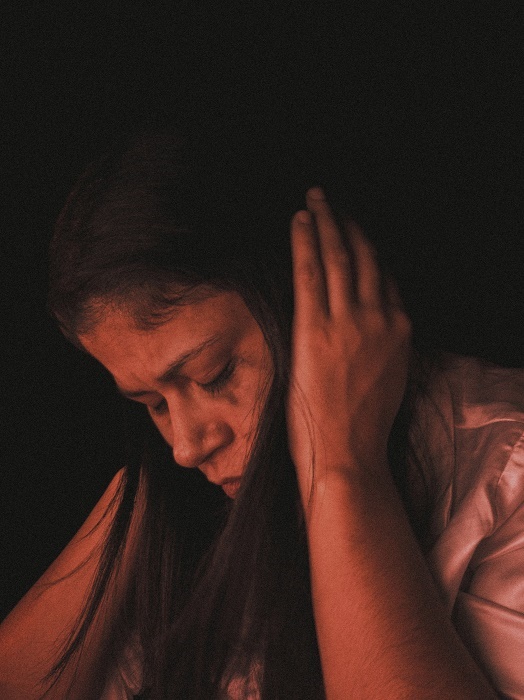In our daily retinue, we came across this word quite a few times but little we are all know that it is a severe, common, and prevalent mental disorder. This disorder has a negative impact on one’s thoughts. Because our thought processes affect, the way of our behaviors and feelings are also negatively influenced. As we lived in a society where having little worry, stress or obstacles is so obvious but when this worry remains for the whole time and gets intense day by day it comes into the category of depression then. For a depressed person, it is very hard to feel optimism and happiness.
Since before the time of the ancient Greek physician Hippocrates, who termed it melancholia, physicians have been describing depression, which is likely the most prevalent psychiatric complaint. The disorder’s progression might be moderate or severe, acute or chronic, and it varies greatly from person to person. Depression can persist for up to four months if left untreated.

When a person experienced depression there was a high probability of developing anxiety by side. According to some existing literature, depression can affect memory and cause short-term memory problems. More than that it sabotages the person’s relationship, creating a disturbance at the workplace, and interfering with keeping good physical health and in a critical situation it may accompany suicide. Rapid eye movement (REM) sleep disorders and depression are related. Neurons in the amygdala, a part of the brain thought to be important in controlling REM sleep, project into the brainstem. In certain sad people, the amygdala may be enlarged, excitable, or otherwise malfunctioning because it is also connected to processing unfavorable ideas. The importance of these correlations has to be determined, but the linkage between depression, disturbed REM sleep, and amygdala abnormalities have opened up new paths for an investigation into the neurobiology and management of depression.
It is a persistent feeling of sadness that is not followed by any loss or grief. When there are obvious reasons for a person to feel unhappy, depression is thought to be present if the gloomy mood is too protracted or severe in comparison to the triggering event. Depression can be precipitated by major life events such as bereavement or job loss. But depression differs from unfavorable emotions someone would have after a traumatic life event. Depression often stays regardless of any change in circumstances or situations and results in emotions that are strong, persistent, and out of proportion to a person’s situation.
Sometimes, depression is mixed up with the symptoms of grief but here are some highlighted differences. Depression is an inability to feel happiness without having actual cause for a long period of time but people experiencing sadness after the loss of loved ones come under grief. Failing in a job, the death of someone, or going through a tragic event is very hard for a person to handle. After getting through those painful times people usually quoted themselves as ‘being depressed. It is because of the fact that depression and grief share some common characteristics. The two of these involve intense sadness and withdrawal from habitual activities. But some of the differences between both of these are the following:
Depression | Grief |
In depression, there is a consistency of having a low mood and lack of interest in usual activities that stay at least two weeks. | People have outbreaks of emotions that usually come and go and involve happy memories or flashbacks of the departed soul |
The depressed person always questioned his self-worth. | In grief, self-esteem is sustained. |
In depression, the death thoughts are based on self-worthlessness or not deserving his life, or inability to manage depressing convictions. | The person might be having thoughts of death but the only reason behind it is to reunite with the dead one |
Every person differs when it comes to experiencing the depression or even the grief. But both can have the potential to interfere with the daily retinue tasks and cause the less productivity. It could possibly worsen already existing health problems such as depression making such conditions more aggregate including asthma, osteoarthrosis, cancer, diabetes, and people with bad eating patterns.
Prevalence
According to WHO (world health organization), it is predicted that 5% of the adult population is suffering from depression. Developed countries provide much attention to their people’s mental health and there are thousands of psychologists and other mental health organizations that are working for the betterment of the person but in developing or underdeveloped countries where the basic needs are declined people did not get professional help because of which the prevalence rate is 75% there. In the United Kingdom, every 1 person in 6 suffers from depression.
Females
Females are more prone to depression than males. it has been a saying that because females are more expressive, sensitive, and emotional than males they tend to attract mental disorders more than males.

Research has also shown that females are more likely to talk and seek assistance for depression indicators.
Males
There is always a stereotype about displaying male emotions. Society considers those men weak who are sensitive.

A man has to be rough and tough according to society’s rules, this lack of support causes depression in the male which usually comes out in the form of intense anger and involving themselves in risk-taking activities. They usually dodge family or social events and keep themselves loaded with work.
Adolescents
The ratio of prevailing depression in teens is also very normal. As in this era of their life they are emerging and adapting to new changes physically, mentally, and emotionally because the constant change occurs some symptoms of depression can hit in this period of time such as restlessness, continuously in rush, changes in mood, draw out themselves from gathering, feeling of worthlessness, guilty and not able to give attention to school work.
Children
In United State, it has been studied that children age ranging from 6 to 17 years old. According to a survey, the percentage of prevalence of depression in children is approximately 4.4% that is continuously increased in recent times. Depression in children affects their performance at school and relationships with their peers too. Such conduct can be exhibited by the child as crying, avoiding school, getting themselves in trouble, being agglutinant, struggling with concentration, disobedience, having problems with sleep and eating patterns, fatigue, and verbal anger outbursts.
